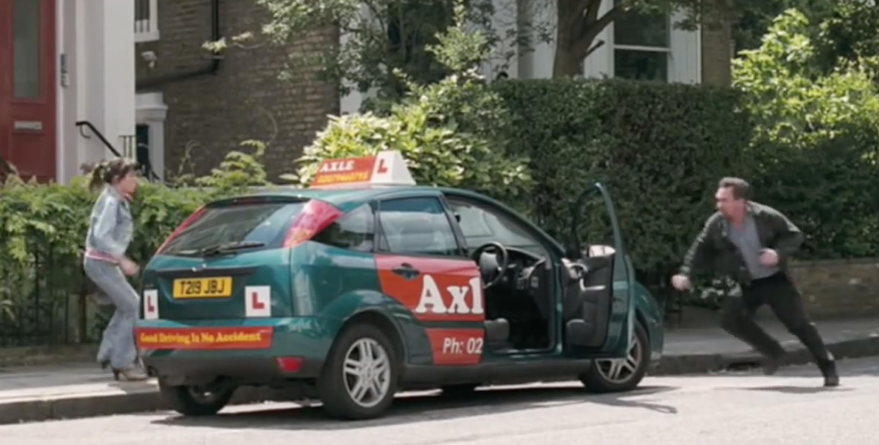Michael Cusumano here to discuss a scene I find myself thinking about all the time.

Scene: Scott's meltdown
When you pause to consider how mundane the actual events of Mike Leigh’s films usually are, it’s funny to think how many moments from them lodge permanently in the memory. Barely a weekend goes by that I don’t see some kind of world-ending cataclysm portrayed in expansively budgeted detail and what does my brain return to over and over again? Lesley Manville in Another Year retreating to her glass of white wine or David Thewlis in Naked stalking a security guard through the dark to harangue him about the meaning of life.
The famous Mike Leigh technique of crafting screenplays from extensive improvisations yields scenes that unfold with the conviction of real life...

As a result, his films don’t need to amp up the action to get our attention. We process the scenes as immensely important, no matter how low the stakes, because, well, that’s how important they would be if they were happening to us.
In this respect, no scene is burned into my mind like the climactic meltdown in Leigh’s 2008 film, Happy-Go-Lucky. Practically, it is just a sour, ill-tempered man losing his grip and taking his personal issues out on his poor driving student. Yet I may as well have been in the backseat myself for how often my mind returns it.
Sally Hawkins’ genius-level performance as Poppy is a far more complex creation than I often see it credited. Most reviews describe Poppy as positivity personified with is far from a complete picture. She does try to meet everything life throws at her with sunshine and cheer but she is also a flirt and a scamp. Her needling of Scott during their drives is quite deliberate, her attitude being something along the lines of “If you can get on my wavelength we can have some laughs, but if you insist on being a curmudgeon I am at least going to amuse myself”. More accurate to describe Poppy as a spirit of anarchy, albeit anarchy of an aggressively chipper variety.

Poppy is also, and there is no getting around this, irritating as hell. To say you love Poppy is not to say you don’t want to smother her with a pillow from time to time. This is entirely intentional on the part of Leigh and Hawkins, who are playing with our first impressions. Realizing that Poppy’s worldview is not as shallow as it first seems, is to understand that her attitude is a conscious choice that she must defend daily against a disagreeable world. Throughout the film Poppy is a happy warrior against pessimism and despair and in her ordeal with Scott is her final crucible. The unstoppable optimist meets the immovable grouch. We’ve already seen a similar dynamic play out twice in the film already by the time’s Poppy’s driving lessons reach a boiling point. Once with the abused child in her class, where she is able to make a difference for the better, and in the second case, with the mentally unbalanced homeless man, whom she finds beyond reaching. In which of these directions Scott will tilt is the central question of the film.
It is no exaggeration to call Eddie Marsan’s Scott one of my favorite of all performances. Marsan is merciless in his dissection of this miserable, bile-filed man. The way his feelings of inferiority are defensively twisted into delusions of grandeur (“I’m outside the pyramid looking in!”) and from there metastasizes into racism and conspiracy theories. The way his anger with Poppy is so clearly rooted in his attraction to her, his mind instantly fast-forwarding to the inevitable sting of rejection and curdling into rage. It’s no accident that for all Poppy’s irritating habits it’s the sight of her handsome new boyfriend that pushes Scott over the edge. Scott is probably the most complete portrait of a troll film has to offer. Wherever he is in 2019 you can be sure he is a nightmare on social media.

You rarely see Happy-Go-Lucky described as a film about teachers although that’s exactly what it is. Poppy and Scott share a vocation. Their conflict isn’t just a personality clash, but a battle over how to approach the world. Her determination to meet Scott’s belligerence with compassion even after he crosses the line into physical and verbal violence (after first re-establishing boundaries) is her final victory in their battle of wills, although it’s a victory in which she is forced to confront her utter inability to help this wretched man. That Poppy continues to face the world with optimism even after experiencing its limits in such a bruising fashion is what makes her a hero.